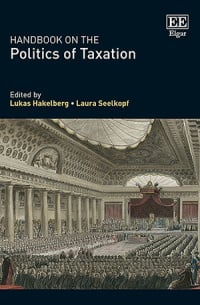Chapter 16: 'The Politics and History of Global Tax Governance' - Handbook on the Politics of Taxation
We discuss the history, political determinants and current challenges of global tax governance. We divide the last century into three eras: foundation, during which states built a regime to prevent double taxation using bilateral treaties and soft multilateral coordination; stability, during which this regime failed to adapt to the growth in volume and complexity of cross-border trade and investment capital; finally, the current era of crisis, characterised by politicisation, an appetite to reform longstanding institutions, and a willingness to trample over fiscal sovereignty.
Existing scholarship explaining this trajectory of change can be organised through well-established interest-based, power-based and ideational accounts.
We argue that future research could build on this existing scholarship by reorienting in three different ways: from tax competition towards double taxation and tax sovereignty, from the OECD to emerging markets and developing countries, and from mid-level theorisation towards the bigger picture of global political economy, of which tax is an intrinsic part.
